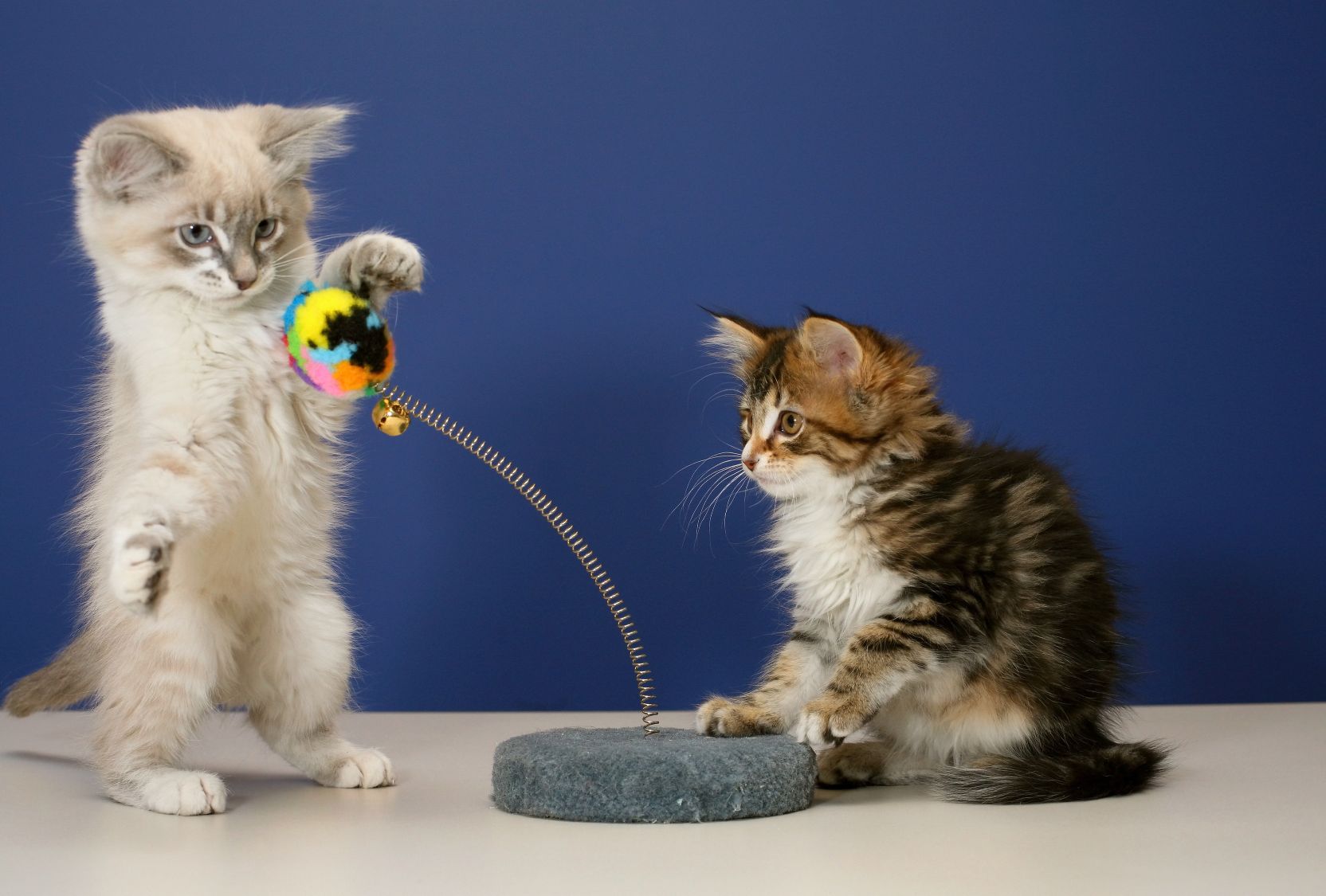
3 Steps to Bringing Home a Shelter Cat
June 15, 2021This month, shelters across the country are participating in Adopt-A-Shelter-Cat Month. This is a great opportunity to adopt one of these adorable animals and help them find their furever home! Cats are wonderful pets that require little maintenance and give unconditional love. If you're looking for a new addition to your family or just want to do something nice for an animal in need, then adopting this month might be the best decision you've ever made!
Adopt-A-Shelter-Cat month originated in 1974 by the American Humane Association to help acknowledge the millions of cats in shelters across the country, just waiting for someone to take them home. There are many ways you can help, from adopting one of these wonderful animals to volunteering your time or donating supplies.
Steps to Adopting a Kitten or Cat
Now that you’ve learned about the history of Adopt-A-Shelter-Cat Month, are you ready to adopt your new best furry friend?
Step 1

Visit your local shelter.
The best time to visit the shelter is at lunchtime or in the evening because this will cut down on your wait time and allow you more one-on-one time with adoption counselors, volunteers, and cats looking for homes.
The difference between adopting and buying:
- Shelters require an application to be filled out before you can adopt a pet. They do this to ensure the pet is going to a good home. They do charge a fee, which varies depending on the shelter.
- Anyone, over the age of 18, can walk into a pet store and buy a pet. Pet stores sell animals that have been bred specifically for sale purposes.
Step 2

Now that you have found the pet you want to take home you'll have to fill out the application. Basic questions that you'll see on the application are:
- Your contact information
- The size of the animal you are looking for
- Where you live
- Do you have other animals in the home
Step 3

Now that the paperwork is filled out and you are ready to take your new friend home, it’s time to find out the best way to take care of this little guy or gal!
First and foremost, do you and your cat have everything you need? Litter box, litter, food and water bowls, the right food for your cat, etc.
Then you want to make sure you are providing a safe place for your new cat. Make sure you have enough space in your house so they can roam around freely without getting lost.
Bringing Them Home

When they first come home they are going to be scared and unsure of their new surroundings. They will need time to get used to you and your home, however, they should settle in quickly as long as they have a safe place with food, water, and lots of love.
Do you have a veterinarian? The shelter will do an initial exam, but you'll want to schedule follow-up visits with your veterinarian too.
Salmon Oil for Shelter Cats
Salmon oil is a safe and effective way to improve the health of shelter cats. If you are looking for a natural way to improve your cat's skin, coat, and overall health, then salmon oil is a good option to consider.
- Improved skin and coat health. Omega-3 fatty acids play an important role in maintaining healthy skin and coat. They can also help to make your cat's coat shinier and more vibrant.
- Reduced inflammation. Omega-3 fatty acids have anti-inflammatory properties, which can help to reduce inflammation in the body. This can be beneficial for cats with conditions such as arthritis, allergies, and inflammatory bowel disease.
- Supports heart health. Omega-3 fatty acids can help to reduce the risk of heart disease in cats. They can help to lower blood pressure, reduce triglycerides, and improve heart function.
- Improved cognitive function. Omega-3 fatty acids have been shown to improve cognitive function in both humans and animals. This can be beneficial for older cats who may be experiencing cognitive decline.
- Reduced stress levels. Omega-3 fatty acids have been shown to reduce stress levels in both humans and animals. This can be beneficial for shelter cats who may be experiencing stress due to their environment.
It is important to start with a small amount of salmon oil and gradually increase the amount over time. This will help to prevent your cat from getting an upset stomach.
Adopt-A-Shelter-Cat month is a great opportunity for anyone looking for their new best friend! You'll be providing them with food, shelter, and love they so desperately need. If you're ready to take the next step and adopt an animal this month, visit your nearest shelter and find out which cute cat best suits your lifestyle.
